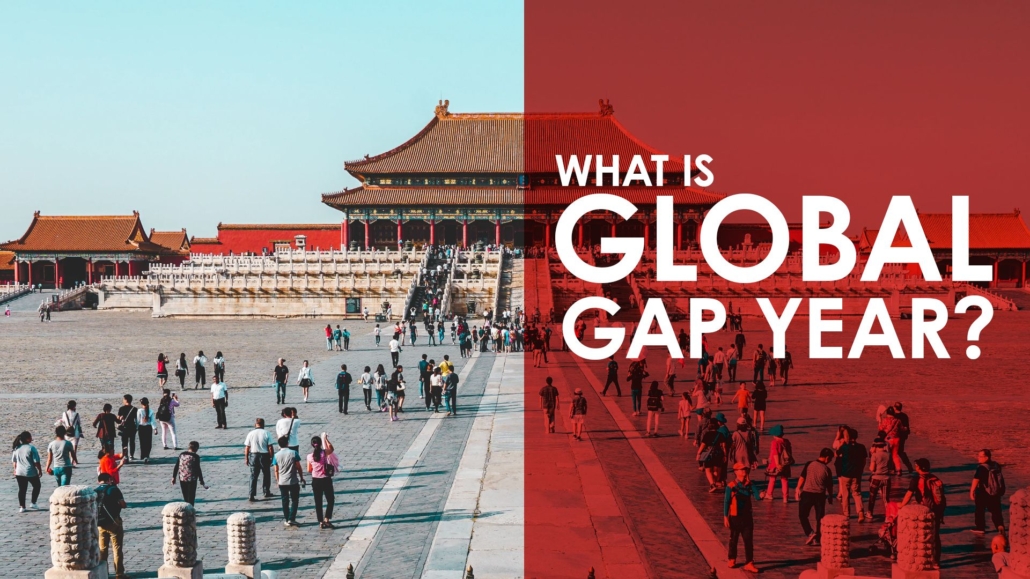What is Global Gap Year?
by Kiana Duncan
While we may think of a gap year as traveling or working for a year before college, Director Sarah Smith of Global Gap Year Fellowship at the University of North Carolina Chapel Hill, is helping to give the gap year a service-oriented spin.
Global Gap Year started in 2011 and aids students in having an at last 6-month immersive experience abroad, doing service in another country. While Global Gap Year’s partnership with Global Citizen Year allows students to pursue specific programs in India, Brazil, Senegal, and Ecuador, Smith specifically aids students designing their own gap year by helping them choose locations, placements for service, and other logistics. Global Gap Years focuses on providing this opportunity to students who traditionally may not have considered a gap year.
“We’ve had a number of students do their gap year in China, which has been eye-opening for me as an administrator,” says Smith.
Some examples of placements for students interested in serving in China are working as teachers in an English-speaking school and assisting students who want to learn English as a second language.
“I really enjoy working with students who have a passion for China in particular,” Smith says. In the last few years, Smith says they’ve been lucky to find placements for students interested in doing their gap year in China.
One student with an interest in medicine was able to shadow at two different hospitals, while assisting in administrative tasks and learning more about public health in China, including both traditional and modern medicine. Another went as part of a state department program.
“The students I worked with, particularly who are passionate about China, have come in with some prior knowledge,” Smith says. She adds that these students may not have traveled their previously but have usually done their own study of Mandarin or attended some cultural events in the United States. Mostly, they’re students who have never been to China who are interested in taking a deeper dive.
“All of our students have really enjoyed their time there,” Smith says. “They often talk about just feeling at home in the Chinese context and the Chinese culture and wanting to continue to foster that ambassadorial spirit between the US and China.”
Why Global Gap Year?
A visit to China can show you the sites, the food, and some of the culture, but Smith says that the real cultural immersion starts with a longer stay.
“It makes a huge difference. It really allows the student to immerse themselves, to really understand the nuance of the culture, more than just kind of your surface level interactions and really get to know whatever part of China they’re In, that local context, culture, language, etc.”
Students doing service are encouraged to stay for at least three months in their host country, in order to give back to their community they’re staying in and also to imbed themselves in the culture and to improve their own personal growth and intercultural competencies.
“The longer you stay, the deeper you can go,” Smith says. “The longer you’re able to stay in a culture that’s different than your own, the more you’ll be comfortable moving within contexts that are different than what you’re used to.”
In terms of cross-cultural competencies, Smith points out that students’ ability to meet and interact with those who are different than them is a benefit of a gap year. Other benefits include further language learning, desire to live and work outside the US, connection and interest in another culture, and more engagement with that culture on their home campus after they return for their freshman year.
Among the top languages students factor in when choosing their host country, Spanish and Chinese make up the top two. From a personal standpoint, Smith can support that language by immersion is helpful after her own experience studying Hindi in India.
“That firsthand knowledge of actually practically practicing those skills, as opposed to just learning it in a book or in a classroom setting I think makes a huge difference,” Smith says.
She also speaks to the importance of meeting people where they are, especially in homestay situations where students are using their language skills daily in the home. Many students leave with an elementary knowledge and return fluent or mostly fluent due to the sink or swim nature of immersion programs.
Also important in the timing of Global Gap Year is the pivotal moment between high school and college, also referred to as emerging adulthood. Despite being eighteen, most students are still exploring their identity, as well as logistical responsibilities that go hand-in-hand, such as finances, traveling along, time management, and caring for themselves.
“It’s such a pivotal moment,” Smith says. “I think that’s why it’s such an important time. It allows us to work with a student when they’re maybe still figuring things out, help them develop some of those skills that will really help them again, in our context, do really well at university.”
After years of education through a high school, Smith points out that taking a step away from the classroom for a year or two to regain or explore their identity can help them discover what they’re passionate about.
“It can be a really good moment to step out of what is seen as conventional or normal, again in the US context, and try something new. And for us that’s going and immersing yourself in another culture and doing so with service,” Smith says.
COVID and Global Gap Year
COVID-19 has left many study abroad programs in uncertain territory as each country navigates re-opening dates and re-entry requirements for foreigners. However, Global Gap Year has found a way for students to have a service-filled and fulfilling year without the question of closed borders through domestic service projects.
Though Global Gap Year is still re-evaluating for the spring, some students have decided to stay domestic the entire year. Smith says this has led to students being able to take advantage of programs they haven’t in the past, such as AmeriCorps. Some examples of domestic projects include voter turnout, COVID-19 relief, Habitat for Humanity, women’s shelters, and systemic racial injustice.
“Students are really passionate about these issues,” Smith says. “Our program is housed in the Center for Social Justice on campus (Hub for Social Justice at UNC), so often our students are very connected to social justice issues. So by being able to stay domestic this year, they’re really able to focus on what’s happening here.”
Of the nine students choosing to do a gap year, most are staying in North Carolina. However, Smith says they’re working on applying for travel permits for some to go to Washington D.C, Hawaii, and Puerto Rico.
“That’s been interesting, and in a lot of ways, exciting,” Smith says. “Being able to be a part of the positive change in our community and this time for it to actually be in our backyard.”
Although students can’t be in other countries for their service, Smith says this time to get to know people from other backgrounds and to have the time to take language classes is still important.
“I think today, more than ever, it’s important that students are learning across difference and appreciating and celebrating diversity and embracing that diversity and seeing the value in it.”
Smith says that especially now in a time of increasing polarization, it’s necessary to understand and interact with and appreciate other cultures.
“It’s one thing to be told something, but it’s another to experience it, when you start to really understand where others are coming from, that’s when empathy comes into play. And empathy is, in my opinion, something that we are really in need of desperately in the US in this moment,” Smith says.






